***
Macau
Day 3 - 28th February - Two Cemeteries, a Chuch and its Museum (Part 2)
I briefly considered heading for the Lou Lim Ioc Garden, but it was modelled after the Gardens of Suzhou, some of which I had already been to, so I decided to skip it.
So, next I headed for the Protestant Cemetery, which held mainly English people's remains. Although it was before 9am, I already felt like dying and calling it a day; Italy in July had been warmer, but it was drier, and that made a big difference.
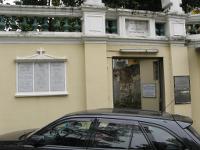
Entrance: "Protestant Church and Old Cemetery [East India Company 1814]"
The Protestant Cemetery was quite run-down, befitting the former privileged position of Catholicism in Macau; there were problems burying non-Catholic Europeans in Macau, necessitating secret and illegal nightime burials. This cemetery was the solution to that.
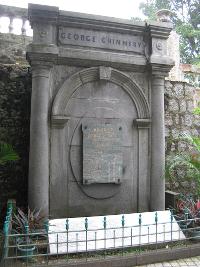
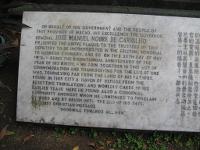
Grave of George Chinnery, "the famed British painter who chronicled nineteenth-century Macau"
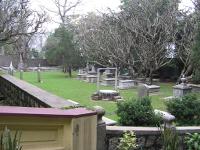
Protestant Cemetery
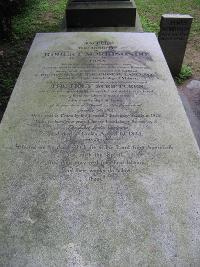
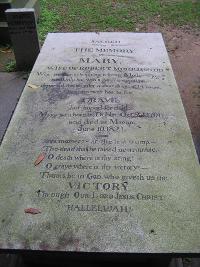
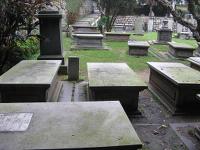
Grave of "Robert Morrison, the first Protestant missionary to China who translated the New Testament into Chinese" and that of his wife and son. He was also the person after whom Morrison House in RI was named.

More of the cemetery
I then left for the Catholic cemetery, encountering this peculiar sign along the way:
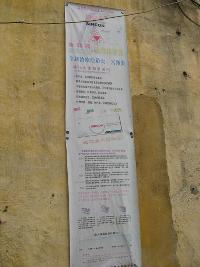
It is mostly in Chinese. However, closer inspection leads one to exclaim:
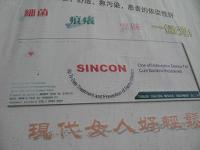
"Sincon: Up To Date Treatment and Prevention of Fanny Infection. One-off Adsorption Device for Cunt Bacteria-Restrained"
What idiot translated this?!
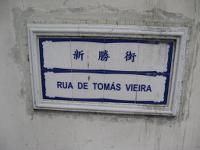
"Rua de Tomás Vieira"
The street signs don't all translate either.
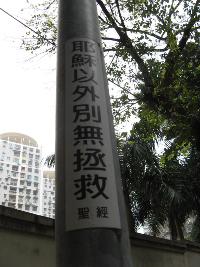
"Apart from Jesus there is no other salvation"
Apparently there's no Sedition Act here
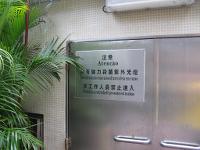
UV garbage treatment centre along the street

Rua de Eduardo Marques; Ignore the slums and this is pretty
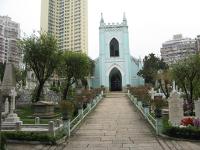
Cemetery of St Michael the Archangel, "a graveyard fantasyland packed with Virgin Mary icons, harp-strumming angels, and assorted saints"
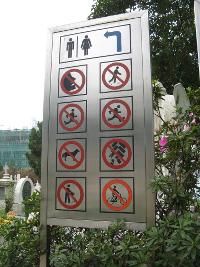
List of forbidden activities. Which include running, setting off firecrackers and tearing books apart.
As you can see, the Catholic aesthetic is more finely developed than the Protestant one:
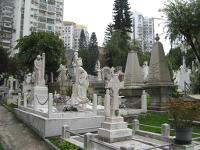
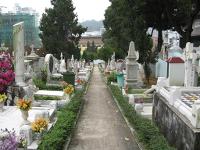

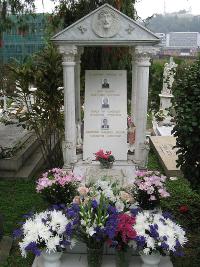
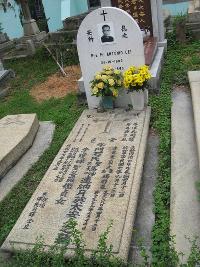
Buried in a Portuguese Cemetery, this grave is dated by Chinese dynastic dating. Treason!

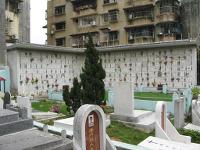
The budget option; most of the plaques don't even list a birth/death date. At first I thought this might be the option for latecomers, but there was still space in the rest of the cemetery, and there were proper graves in the cemetery dated later than some of the niches here. It wasn't racism either - some Chinese had proper graves, while some Portuguese got wall niches.
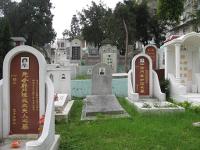
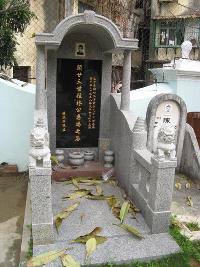
I couldn't see anything Catholic about this one - there were even joss sticks!
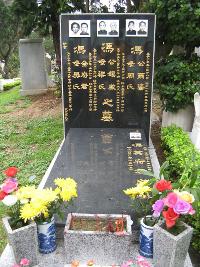
Crowded tomb, with 7 people here (and space for more)
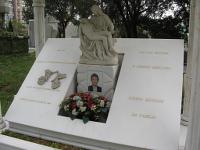
Tomb with Pirated Pieta
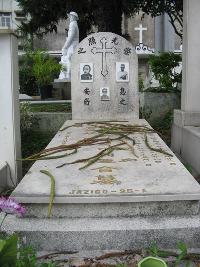
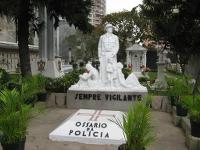
I like the way the guy is looking up
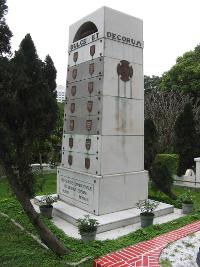

"Dulce et decorum est pro patria mori"
I didn't see one for World War II, but then they were essentially neutral then
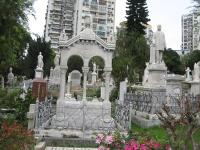

Youth Activity Centre, in a 1918 building (St Ignatius?)
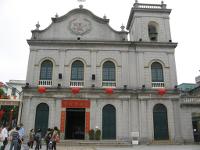
St Lazarus Church
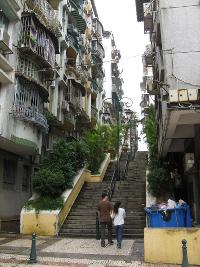
Another stair
Filipino (Filipina) Worship
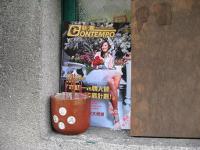
Contempo Worship; ??? - worshipping modern idols?!
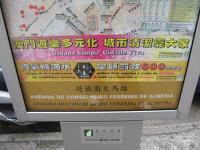
"Air conditioners dripping is liable to a fixed fine of MOP600"
Macau is a fine, a fine fine city
Getting lost, I needed to be rehydrated with Bubble Tea.

Vermicelli Milk Tea. Eee.

Weird Taiwanese brand: "The World Tea Shop".
It's not a very subtle shop name either: "Come Buy".
I had a Calpis Grape, with real grape skins inside. The jelly floated to the top, and its taste and texture was like aloe vera.
I then went to S. Domingo's. It was built by the Spanish in 1587, and apparently has a Spanish look:
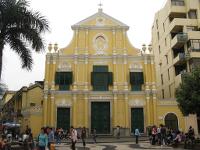
(picture of exterior posted earlier)
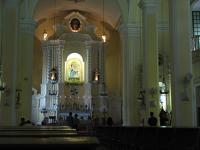
S. Domingo's nave
The piped Latin Church music was not quite loud enough to drown out the Cantonese singing on Senate Square.
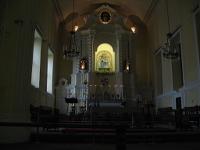
S. Domingo's Altar
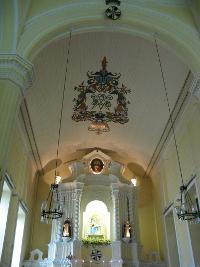
S. Domingo's Ceiling

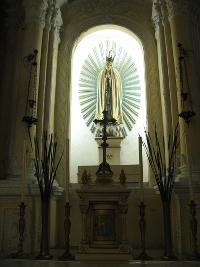

Scary halos must be an Iberian thing
I also viewed the museum attached to it. Not everything was labelled.
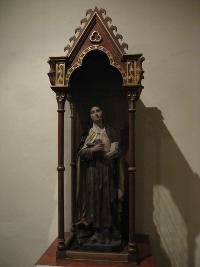
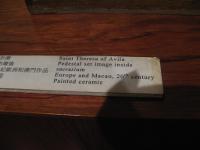
Saint Theresa of Avila, Europe and Macao (20th century)

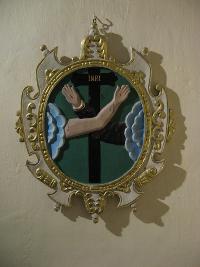
Divine Arm Wrestling (?)
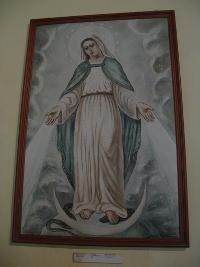

Immaculate Conception. Macao, 20th century
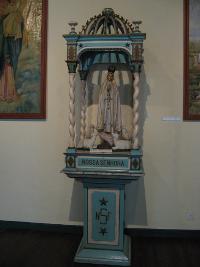
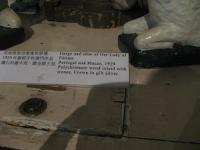
Image and Altar of Our Lady of Fatima. Portugal and Macao, 1929.
They were very into figurines. IIRC this was an Iberian thing.
The quality of the works was not very different from the St Paul's museum, which confirmed my evaluation of Portuguese and Portuguese-Asian art.
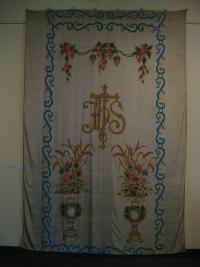
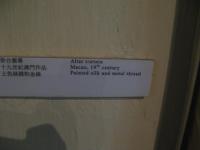
Altar Curtain. Macao, 19th Century.
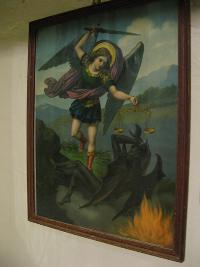
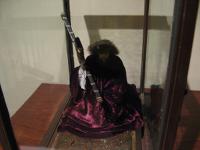
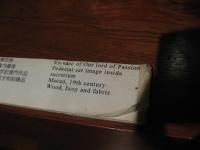
Ex-vato of Our lord of Passion. Macao, 19th century.

Various image ornaments

Our Lady of Remedies
Macau also has issues with foreign talent; at Lord Stow's the local patrons had to talk in English to the Filipino/Indonesian staff, even though they used Cantonese among themselves. Hah.


